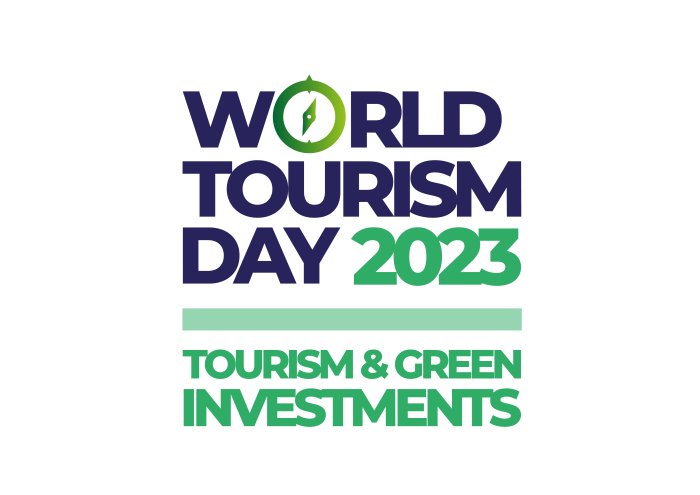
Download Press release
Green investments in sustainable tourism: Naturefriends bring their houses on a climate track
Today's World Tourism Day is themed "Tourism & Green Investment". This topic is also of great concern to Naturefriends. They have long been committed to sustainable leisure and tourism development and invest in green technology for their houses and refuges.
"On this World Tourism Day we recognize the vital need for green investments to build a tourism sector that delivers for people and planet. ... So, let's all do more to realise the full potential of sustainable tourism. Because an investment in sustainable tourism is an investment in a better future for all", is the call of António Guterres, Secretary General of the United Nations. Naturefriends follow this call.
Naturefriends Houses get climate-friendly
Founded in 1895, Naturefriends are active in over 45 countries worldwide, and the environmentally and socially responsible shaping of tourism and leisure activities is one of their main concerns. In many countries, Naturefriends operate houses and refuges – and they are committed to making them climate-friendly.
Ambitious climate targets in the Netherlands
Like in the Netherlands, for example. There, Naturefriends are the owners of twenty Naturefriends Houses and campsites. "Back in 2012, we installed an energy monitoring system for all our houses and campsites - with the aim of halving total energy consumption by 2024," reports Kees Hogervorst, energy expert at Naturefriends Netherlands. And we are well on our way, Kees Hogervorst continues: "For electricity, we will reach the target in full. With gas, however, we have only been able to save 29 per cent."
All Naturefriends Houses have been thermally insulated, the lighting has been converted to LED and numerous solar panels and heat pumps have been installed. "All houses and campsites together now have more than 1,000 solar panels – and more will be added!", Kees Hogervorst emphasises.
Sustainable Naturefriends Houses in Switzerland
The sustainability of their houses is also a central concern for the Swiss Naturefriends. In 2022, the project "Sustainable Naturefriends Houses" was launched, in which the operators of the houses can submit projects to improve the sustainability performance of their house. Selected houses are supported in the implementation of their projects through financial contributions, advice and help in obtaining third-party funding. In this way, the project makes a concrete contribution to the ecological, social and economic sustainability of the houses and at the same time creates positive examples visible that can be taken up by other houses. "A challenge for many of our Houses is that they are owned by volunteer-run associations, which often have few assets of their own. Since the Houses are not run for profit, the sections often also find it difficult to raise the money for larger investments – especially now with the rising interest rates. With the project `Sustainable Naturefriends Houses´, we hope to be able to show new ways for such Houses, too," says Sebastian Jaquiéry, Co-President of Naturefriends Switzerland.
Step by step towards more sustainability in the Austrian Alps
In Austria, many Naturefriends Houses are located in national parks, nature reserves and ecologically sensitive alpine regions. "One of the most important tasks is therefore the modernisation and environmentally compatible operation of these houses," explains Regina Hrbek, Naturefriends Austria's Head of the Nature Conservation, Environmental Protection, Houses Management and Access Rights Department. Therefore, Naturefriends Austria have invested several million euros in recent years for the construction of solar and photovoltaic systems as well as for thermal insulation measures and for environmentally friendly wastewater disposal.
A flagship project is the Naturefriends House Knofeleben in the Schneeberg region south of Vienna. After a fire in 2011, the house was rebuilt in timber construction – the challenge here: neither an electricity connection nor a sewer connection is available. All the electricity needed, including for hot water, is generated by solar collectors. A wood gasification boiler and a wood stove in the guest room provide cosy warmth. Rainwater is collected as service water. And the sustainability concept is also reflected in the menu: "The Knofeleben House focuses on regional dishes, and vegetarian and vegan food is not neglected either," says Regina Hrbek. After all, catering for guests also plays a major role in sustainability performance: meatless dishes made from regional and seasonal ingredients have a much lower carbon footprint than traditional meat dishes.
Like seven other Naturefriends Houses, the Knofeleben House has also been awarded the Austrian Eco-label. And here, too, they are looking ambitiously to the future: "In the coming years, we will continue to invest in the greening of our huts and houses and motivate the operators to have their houses certified with the Austrian Eco-label," says Regina Hrbek.